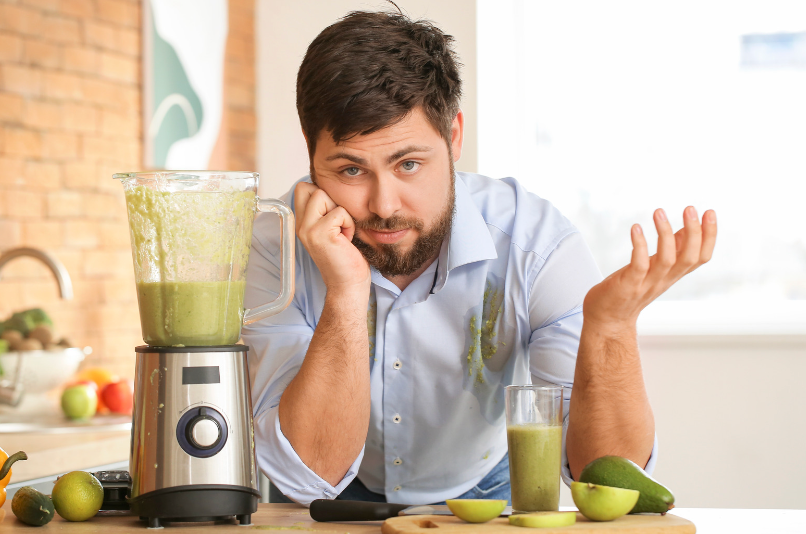As a registered dietitian nutritionist for over ten years, I've seen many individuals come into my office after struggling with weight loss. In this blog, I’m going over the ten most common mistakes I see people make.
1. Not Eating Enough Protein
Consuming sufficient protein is crucial whether you're monitoring your food intake or on GLP-1 medications. Distributing protein throughout the day at meals and snacks helps improve energy, stabilize blood sugars, maintain muscle mass, and decrease hunger hormones, making you feel more full and satisfied. Research suggests consuming 30 grams of protein at each meal to get the most benefits (1).
Excellent protein sources include Designer Wellness protein drinks and smoothies, chicken breast, fish, shellfish, cottage cheese, edamame, Skyr, plain Greek yogurt, tofu, and tempeh.
Pro Tip: Start your day with protein, like a Designer Whey strawberry protein drink. This will stabilize your energy for the rest of the day and help decrease carb cravings.
2. Focusing Solely on Calories In and Calories Out
While monitoring caloric intake is valuable, the quality of your diet is equally crucial. Prioritize nutrient-dense foods over empty calories. A balanced diet of whole foods, including beans, legumes, vegetables, fruit, and proteins, supports overall health and can make weight loss more sustainable.
If someone follows a low-calorie diet but eats mainly highly processed foods like crackers, protein bars, sugar-free jello, diet soft drinks, pasta, and sugar-free cookies, they will likely lose valuable nutrient stores, lower muscle mass, and be less likely to sustain weight loss.
Pro Tip: If you are having a hard time getting in all your vegetables, try adding them to a smoothie mixed with 1 cup of fruit and two scoops of a high-quality, low-calorie protein powder like Designer Wellness’s entire line, including Designer Whey, Designer Soy, Designer Plant, Designer Lite, Designer Egg, and Aria.
3. Cutting Out All Carbs
Not all carbohydrates are created equal. High-fiber carbohydrates like beans, lentils, peas, fruit, and winter squash are low-glycemic and beneficial for your diet. These foods provide essential nutrients and help maintain stable blood sugar levels. The fibers in these foods also contain prebiotics, which help feed your healthy gut microbiota while supporting weight loss, energy, and positive mental health (2).
4. Not Drinking Enough Water
Hydration is key to weight loss and overall health. According to the National Academy of Medicine, women need about 9 cups of water a day (72 ounces), and men need about 13 cups a day (104 oz) (3). Staying hydrated helps control hunger, improves digestion, and enhances metabolism (4).
Pro Tip: Carry a water bottle with a straw. People tend to drink more liquid when using a straw.
5. Skipping Exercise
Physical activity is vital to a healthy lifestyle and weight loss journey. More than 20% of weight loss can be muscle mass. If you skip the exercise, you will lose muscle mass and are more likely to regain weight (5). Aim for 150 to 300 minutes of moderate exercise per week. Incorporate a mix of cardio, strength training, and flexibility exercises to maximize benefits (6).
6. Neglecting Sleep Hygiene
Poor sleep can negatively impact weight loss efforts. Anything under 7 hours can increase cravings for carbohydrates, decrease motivation, and lower your metabolism (7). Aim for 7-9 hours of quality sleep per night. Establish a regular sleep schedule, create a restful environment, and avoid screen time 1 hour before bed to improve sleep quality.
7. Ignoring Environmental and Stress Factors
Your environment and stress levels significantly influence your weight loss journey. Identify and address stressors in your life, and create a supportive environment that promotes healthy habits. Mindfulness practices, such as meditation, breathwork, and yoga, can help manage stress (8).
8. Eating Too Much Fruit
While fruit is healthy and provides essential vitamins and minerals, consuming it excessively can increase sugar intake. Balance your fruit consumption with other food groups and focus on whole fruits rather than juices or dried fruits. A general recommendation is limiting fruit to 1 cup at a time and 2 cups per day.
Pro Tip: When enjoying a smoothie with your Designer Wellness protein powder and 1 cup of fruit, still enjoy the sweeteners without too much sugar. Use milk, water, coconut milk, or nut milk instead of juice for liquids.
9. Thinking of Weight Loss as a Short-Term Goal
Weight loss should be viewed as a long-term lifestyle change rather than a temporary fix. Adopting sustainable habits and making gradual changes can lead to lasting success. Focus on building a healthy relationship with food and exercise that you can maintain for life.
10. Going Nuts of Over Nuts
Nuts are a healthy, delicious snack. Having ¼ cup of nuts daily is recommended as part of the Mediterranean diet. Often, I’ve found people go a little overboard with their nuts consumption; mindlessly snacking on nuts or peanut butter all day can lead to overconsumption. One cup of nuts is about 800 calories. Keep nuts to one handful or ¼ cup a day to help for the most benefit.
By avoiding these common mistakes, you can set yourself up for a successful and sustainable weight loss journey. We at Designer Wellness are here to support you with all your health goals. Check out all our healthy eating blogs to help you meet your goals! Remember, it's not just about losing weight; it's about adopting a healthy lifestyle that you can maintain for the long term.




